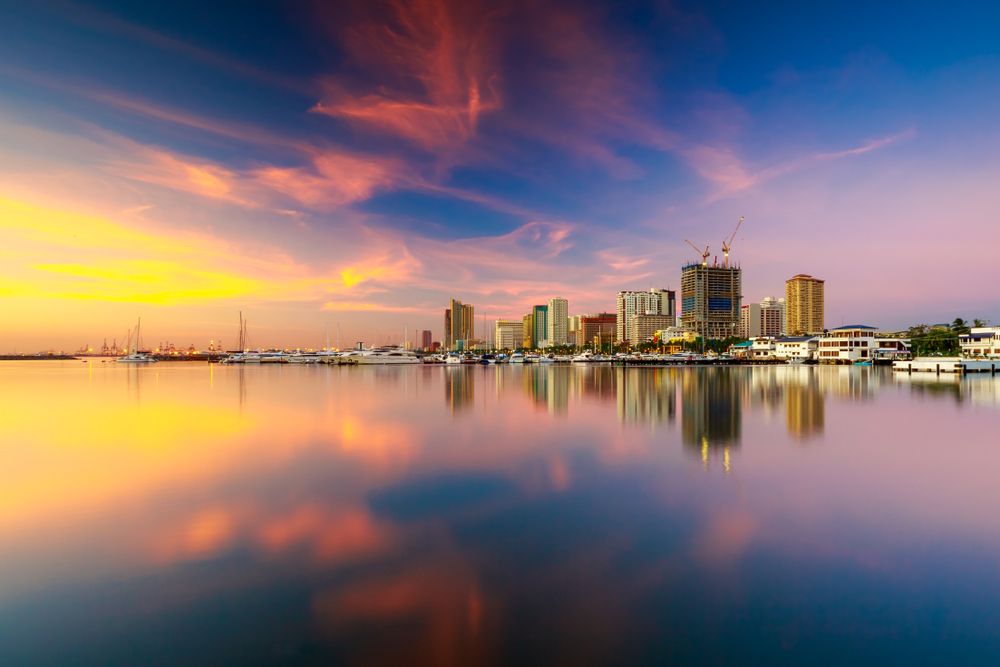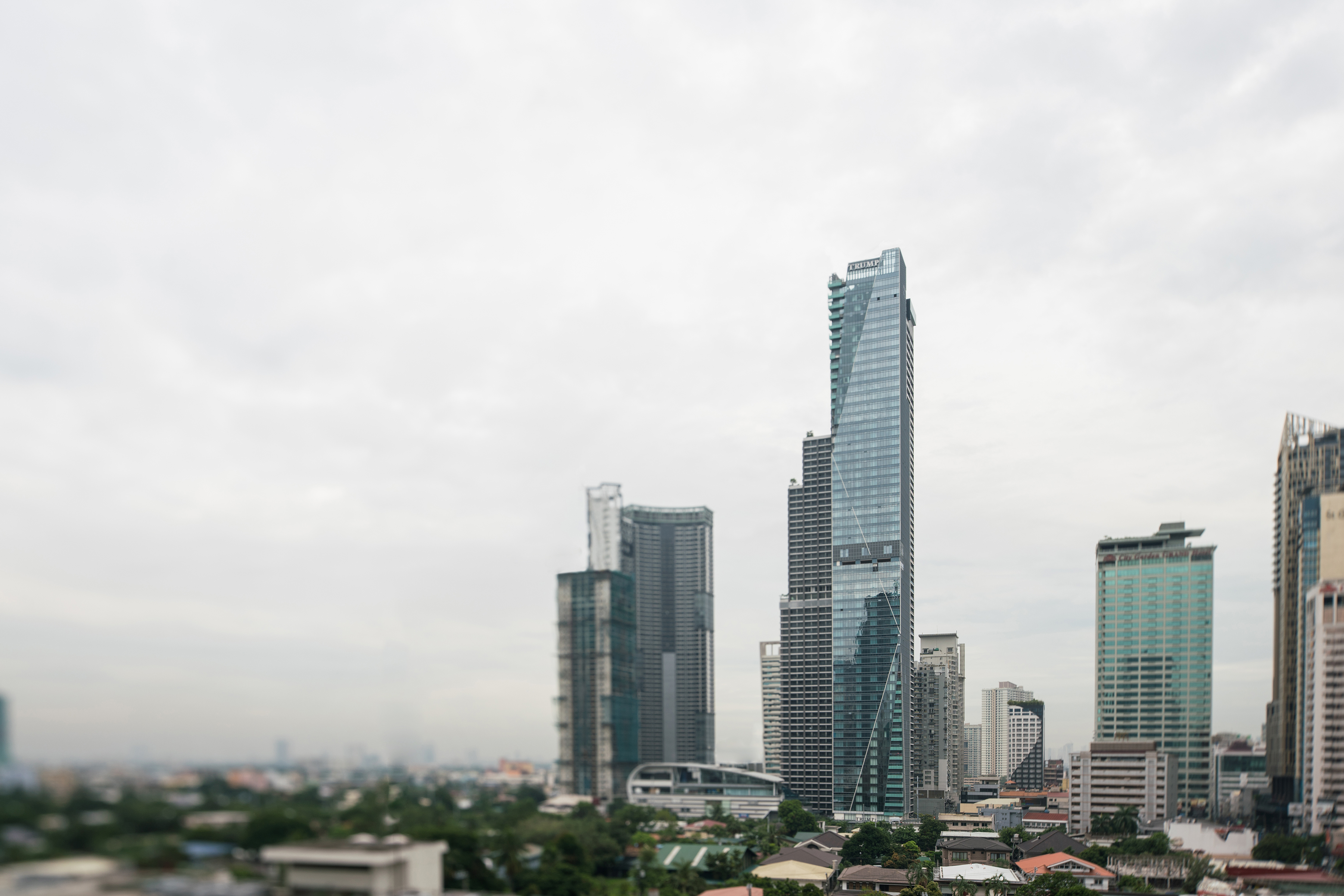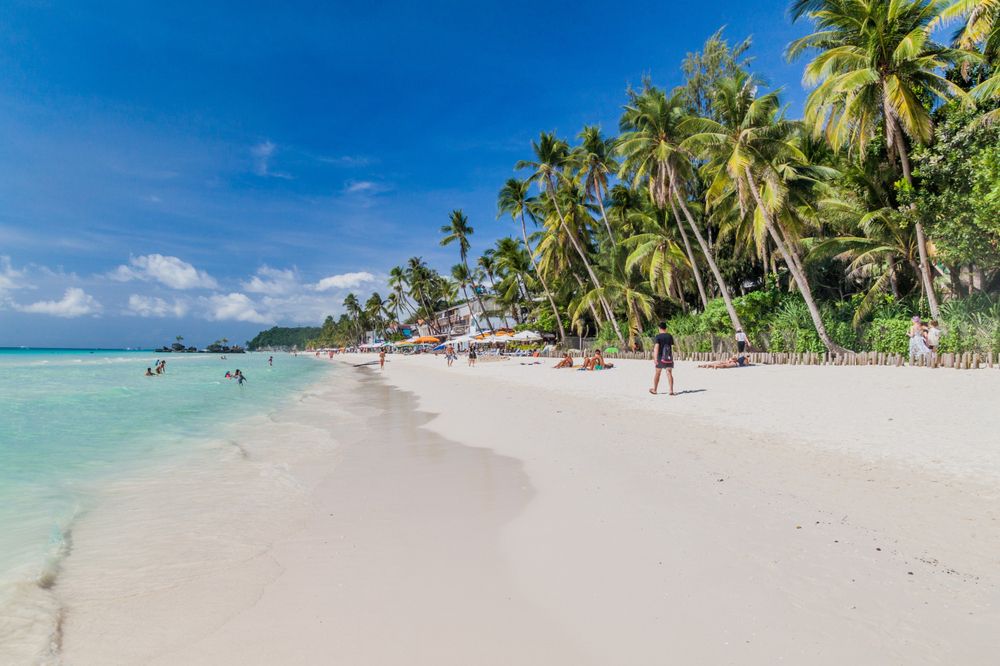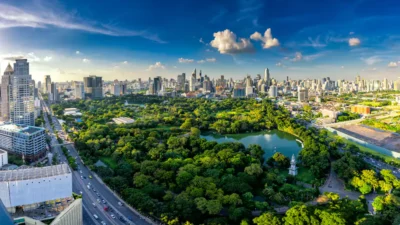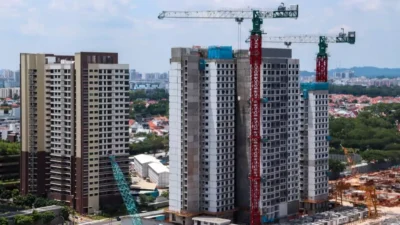Chinese détente means more funds in the Philippines
Against the backdrop of a stable economy, and warm Sino-Philippine relations, residential spaces in the Philippines are riding an unlikely boom
China’s influence in its “backyard” has long been a divisive issue with Southeast Asian electorates worried about its growing heft.
The Philippines is no exception.
Philippine President Rodrigo Duterte has a close relationship with Chinese premier Xi Jinping, but critics believe this détente has become all too cosy.
Discomfited by unilateral Chinese reclamation of territory in the West Philippine Sea, critics of Duterte’s perceived coddling of China have latched onto the colossal rise of Chinese workers in offshore gaming firms—150,000 documented at last count—as further evidence of reckless surrender to the mighty superpower to the north.
But what observers on both sides of the debate can’t deny is that this influx from China has been highly beneficial to the property market in the Philippines.
“Warmer ties between the Philippines and mainland China have generated healthy investor demand from the latter, as individuals and firms have been snapping up residential condominium units in the Metro Manila Bay Area,” says Christophe Vicic, country head of JLL Philippines.
China accounted for nearly USD190 million of net foreign direct investments (FDI) into the Philippines in the first 10 months of 2018, up from USD13 million in 2017. Net inflows of FDI from all sources rose 8.4 percent year-on-year over the same period to USD8.5 billion. The economy ascended 6.2 percent in 2018, the seventh consecutive year of GDP growth above six percent for a nation of 107 million.
The fact that prices for new condos can be one-fifth of other popular markets like Hong Kong makes investing in the Philippines seem a bargain
“Our outlook for the Philippine real estate market remains positive, underpinned by stable macro fundamentals that would support the growth of the sector,” says Vicic.
Chinese mainlanders have gravitated towards the Philippines’ comparatively affordable residential market and its promise of solid appreciation. “The fact that prices for new condos can be one-fifth of other popular markets like Hong Kong makes investing in the Philippines seem a bargain,” says Carrie Law, CEO of property portal Juwai.com, which recorded a 200.6 percent climb last year in Chinese home-buying enquiries for the Philippines.
Swiss private bank Julius Baer rated Manila as one of Asia’s most price-competitive cities for residential property last year. At 5.1 percent, Manila’s rental yield is higher than Bangkok (four percent), Singapore (2.9 percent), Shanghai (two percent) and Hong Kong (two percent), according to Colliers International. “Local and foreign investors have been acquiring completed and pre-selling units across the country’s capital, enticed by attractive yields that are among the highest in Asia,” says Joey Roi Bondoc, research manager for Colliers Philippines.
The consultancy predicts the luxury residential market to continue breaching PHP400,000 (USD7,600) per square metre this year, with condominium prices rising 4.7 percent a year from 2019 to 2021.
Trump Tower Manila, which bagged Best Luxury Condo Development in Metro Manila at last year’s PropertyGuru Philippines Property Awards, offers Hermès-furnished units at PHP469,000 per sqm. Highly commended winners in the same category, The Albany and The Imperium at Capitol Commons, averaged at PHP267,000 per sqm and PHP190,000 per sqm, respectively.
Monthly take-up of residential space accelerated by more than 20 percent in the last quarter of 2018 compared to the third quarter, according to Santos Knight Frank. Chinese investors, having “saturated” the Bay Area where gaming firms and casinos are concentrated, are searching for property in areas with higher vacancies like Alabang, Ortigas, and Quezon City, says Santos Knight Frank corporate communications manager Paolo Abellanosa.
To expedite the formation of Chinese-backed reclamation projects in Manila Bay, Duterte recently subsumed the Philippine Reclamation Authority into his office. “Reclamation addresses a key hurdle in investments which is the availability of land,” Vicic says. “It’s still a challenge to match foreign requirements with local opportunities as foreign investors typically require huge tracts of land not available in the market. This is coupled with rising land values which also limit the number of interested players and feasible investment projects.”
Online gaming firms accounted for a 22 percent share or 221,000 sqm of total transactions in the office segment last year, trailing the 490,000 sqm of transactions commanded by the information technology and business process management (ITBPM) sector, according to Pronove Tai International Property Consultants.
More: JLL’s Christophe Vicic shares what’s on the horizon for Philippines property market
“Online gaming firms will continue to drive the rental rates in the office market in the medium term,” says Monique Pronove, CEO of Pronove Tai International Property Consultants. “The effect on rates is even more pronounced in the residential market where Chinese tenants will continue to enter into a lease agreement even at premium rates.”
While Chinese migrants filed into Manila, overseas Filipino workers (OFW) remitted USD23.768 billion in the first 10 months of 2018—a 4.4–percent annual growth. “The continued growth of OF remittances is supporting residential sale demand, particularly in the mid-tier segment,” Vicic says.
The rehabilitation of top tourist draw Boracay Island did little to cripple international arrivals, increasing 7.68 percent year-on-year in 2018 to 7.1 million, including 970,000 Chinese tourists from January to September. “The hospitality and tourism industries are the sectors outside Metro Manila that will benefit more from inbound Chinese capital,” says Pronove, adding that mainland Chinese–owned companies have started venturing into travel agencies. More Filipinos are also travelling these days, with 60 million domestic trips recorded annually.
Filipino workers have found greater wherewithal to own homes through another Duterte policy, the Tax Reform for Acceleration and Inclusion (TRAIN) Act or the initial salvo of the Comprehensive Tax Reform Program (CTRP). “The TRAIN 1 package has led to higher disposable incomes and supported the already healthy domestic consumption of the country, including the residential market,” Vicic says.
Risk looms this year, however, as investors steel themselves for political, legislative and bureaucratic pressures. “There’s a bit of headwinds from the upcoming elections as some investors are adopting a wait-and-see attitude to evaluate the risk profile of the country,” Vicic says. “Admittedly, there has been mixed reception among investors. Nonetheless, it’s still business as usual for the major and established players while prospective entrants have been more cautious or apprehensive, overall.”
Uncertainty is high time to remember the selling points that have made Philippine property a recurrent, albeit problematic, favourite. While election candidates dance the latest round of musical chairs, one thing remains constant: real estate’s ability to sustain demand on all fronts, from the Chinese up north and the American outsourcers west to the OFWs east.
This article originally appeared in Issue No. 153 of PropertyGuru Property Report Magazine
Recommended
6 sights to spot in Jardine’s Lookout, Hong Kong
With its sumptuous harbour vistas, this low-density area is one of the most sought-after in Hong Kong
Meet the architect rethinking disability in urban spaces and how cities can be reimagined
Author David Gissen outlines his vision for urban development that takes the needs of disabled citizens into consideration
Why Asia’s mixed-use developments are the future of real estate
Dynamic integrated communities are fusing real estate with commercial, leisure, and other amenities
Transforming cities worldwide: Surbana Jurong’s vision for the future
Surbana Jurong excels in master planning, infrastructure, and urban development

